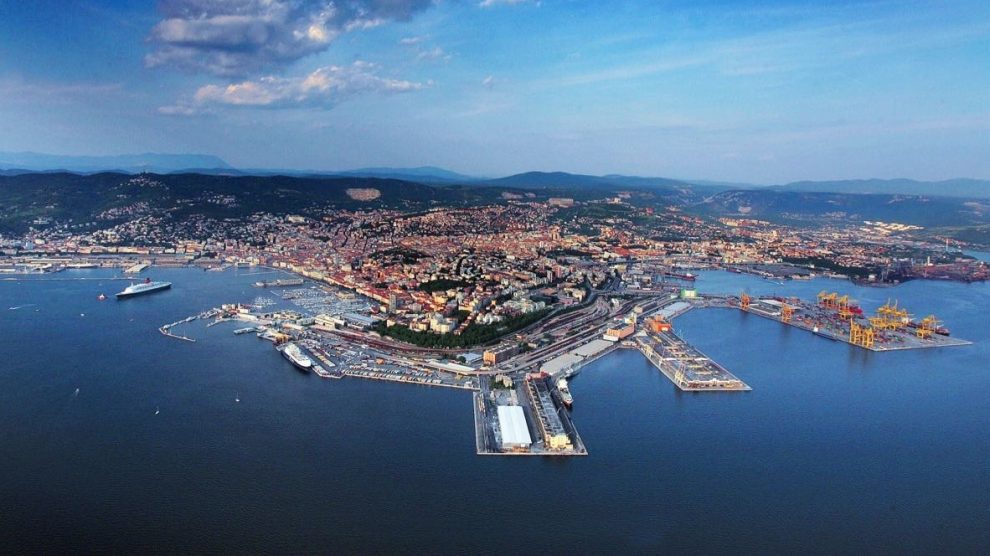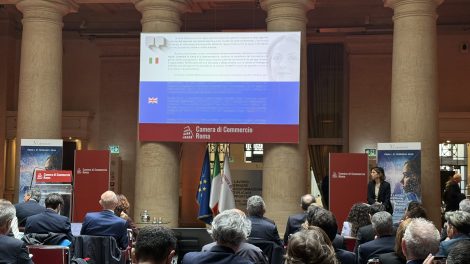Why Trieste is crucial. The port of call in Northern Italy, as Prime Minister Giorgia Meloni remarked to Il Piccolo, is an essential part of the country’s links with the world; it’s “the natural platform to project [Italy] to the East and to open up the road from north-eastern Europe to the Mediterranean.”
- As Enterprise Minister Adolfo Urso recently announced, the government intends to make it the main port of reference for Ukraine’s wartime imports and exports.
- “Ukraine is for us a hope for peace and an opportunity for the future. When the war ends – and I hope it will happen soon – Italian companies will be ready to take up the challenge to revive Kyiv’s economy,” explained the PM, recalling the Ukraine reconstruction conference scheduled to take place in Rome on April 26.
Chinese aims. Ms Meloni did not directly mention Beijing, which has its sights on the Trieste airport (fuelling the United States’ concern) as well as the port of Taranto. Her majority partner Silvio Berlusconi was more explicit: in a letter to Il Piccolo, the leader of Forza Italia noted the government’s commitment to the Balkans and then stressed that Italy “cannot leave the most strategic of infrastructures, the port of Trieste, in the unfriendly hands of the Chinese Silk Road project.”
- “Of course, China is an essential interlocutor for a territory that lives on trade, but the relationship with China cannot be one of structural subordination,” he added.
What’s with the Belt and Road? Among the trade agreements, signed when Italy joined the Chinese infrastructure outreach project in 2019, is a cooperation agreement between China Communications Construction Company (CCCC) – which is in the hands of the Chinese government and acts as a contractor in many of Beijing’s expansionist projects – and the Port System Authority of the Eastern Adriatic Sea, comprising the seaports of Trieste and Monfalcone.
- In 2020, the US government blacklisted CCCC for its links with the Chinese military.
- Of equal concern is the issue concerning the entry of the Chinese State-owned shipping and logistics group Cosco into a Hamburg seaport terminal, with a 24.9% stake in the logistics company Hamburger Hafen und Logistik AG (HHLA).
- The latter, in turn, concluded a deal early last year to acquire 50.01% of the Trieste logistics platform company.
- As Merics analyst Francesca Ghiretti told us, the Sino-German deal “does not seem to have direct repercussions on Trieste.” However, a wider look raises competition issues. “Cosco, which receives state funds from China, does not compete at the same level as other companies in the sector, [and] its dominant position in the market is a potential geopolitical tool for Beijing.”
Remember the Memorandum. By year’s end, the Meloni government will have to decide on the Silk Road MoU, which is set to auto-renew unless one of the two partners decides to take a step back by notifying the other party three months in advance. The issue, as the Italian PM recently noted, is “still being evaluated.”
- On Thursday, the President of the European Commission, Ursula von der Leyen, called on Europe to be “bolder” towards China.
- A few hours later, Fu Cong, Chinese Ambassador to the European Union, warned European countries willing to follow US demands to restrict trade with Beijing, noting they would do so “at their own risk.”
Is that a threat? That message also seemed directed at Italy, as it plays on widespread fears among Italian diplomats who believe that a step back from the Silk Road could trigger a harsh, coercitive reaction from Beijing along the lines of those it carries out against Australia (on the same matter) and Lithuania (over Taiwan).
- On the one hand, the MoU is a de facto dead letter: as the document states, it “does not constitute an international agreement from which rights and obligations under international law can be derived.”
- On the other hand, the comparisons with Lithuania and Australia are deemed excessive by those pushing for non-renewal: Italy is a G7 country (the only one to have joined the BRI), and such a response would get a harsh counter-reaction from the club, goes the reasoning.
- Nevertheless, Agriculture Minister Francesco Lollobrigida said that Rome “will move in concert with the European States and also with the US [and] NATO countries” on this matter.





